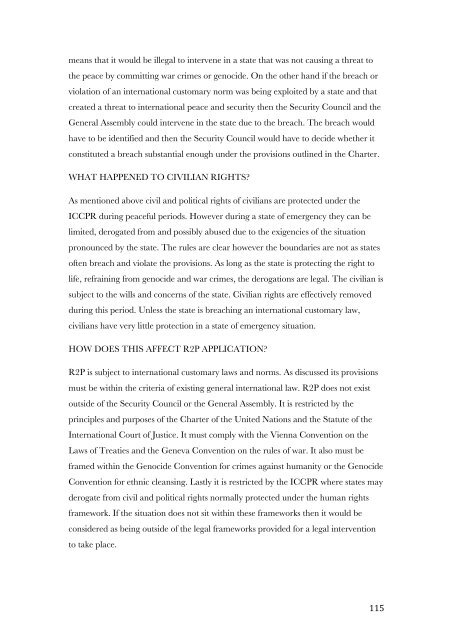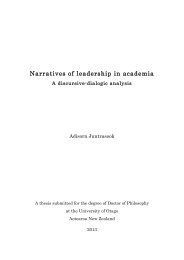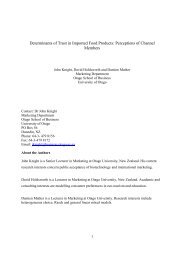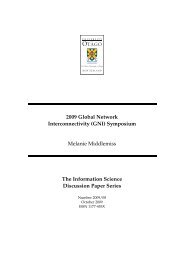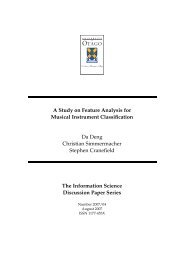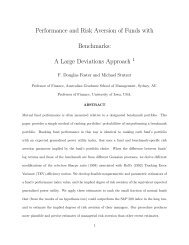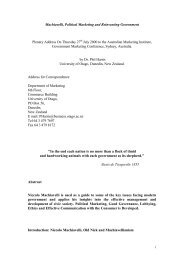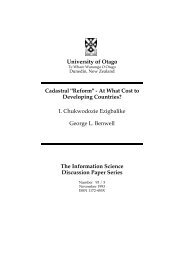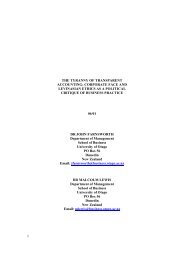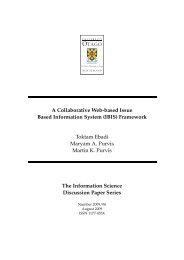Where is R2P grounded in international law? Anne-Marie Judson A ...
Where is R2P grounded in international law? Anne-Marie Judson A ...
Where is R2P grounded in international law? Anne-Marie Judson A ...
Create successful ePaper yourself
Turn your PDF publications into a flip-book with our unique Google optimized e-Paper software.
means that it would be illegal to <strong>in</strong>tervene <strong>in</strong> a state that was not caus<strong>in</strong>g a threat to<br />
the peace by committ<strong>in</strong>g war crimes or genocide. On the other hand if the breach or<br />
violation of an <strong>in</strong>ternational customary norm was be<strong>in</strong>g exploited by a state and that<br />
created a threat to <strong>in</strong>ternational peace and security then the Security Council and the<br />
General Assembly could <strong>in</strong>tervene <strong>in</strong> the state due to the breach. The breach would<br />
have to be identified and then the Security Council would have to decide whether it<br />
constituted a breach substantial enough under the prov<strong>is</strong>ions outl<strong>in</strong>ed <strong>in</strong> the Charter.<br />
WHAT HAPPENED TO CIVILIAN RIGHTS?<br />
As mentioned above civil and political rights of civilians are protected under the<br />
ICCPR dur<strong>in</strong>g peaceful periods. However dur<strong>in</strong>g a state of emergency they can be<br />
limited, derogated from and possibly abused due to the exigencies of the situation<br />
pronounced by the state. The rules are clear however the boundaries are not as states<br />
often breach and violate the prov<strong>is</strong>ions. As long as the state <strong>is</strong> protect<strong>in</strong>g the right to<br />
life, refra<strong>in</strong><strong>in</strong>g from genocide and war crimes, the derogations are legal. The civilian <strong>is</strong><br />
subject to the wills and concerns of the state. Civilian rights are effectively removed<br />
dur<strong>in</strong>g th<strong>is</strong> period. Unless the state <strong>is</strong> breach<strong>in</strong>g an <strong>in</strong>ternational customary <strong>law</strong>,<br />
civilians have very little protection <strong>in</strong> a state of emergency situation.<br />
HOW DOES THIS AFFECT <strong>R2P</strong> APPLICATION?<br />
<strong>R2P</strong> <strong>is</strong> subject to <strong>in</strong>ternational customary <strong>law</strong>s and norms. As d<strong>is</strong>cussed its prov<strong>is</strong>ions<br />
must be with<strong>in</strong> the criteria of ex<strong>is</strong>t<strong>in</strong>g general <strong>in</strong>ternational <strong>law</strong>. <strong>R2P</strong> does not ex<strong>is</strong>t<br />
outside of the Security Council or the General Assembly. It <strong>is</strong> restricted by the<br />
pr<strong>in</strong>ciples and purposes of the Charter of the United Nations and the Statute of the<br />
International Court of Justice. It must comply with the Vienna Convention on the<br />
Laws of Treaties and the Geneva Convention on the rules of war. It also must be<br />
framed with<strong>in</strong> the Genocide Convention for crimes aga<strong>in</strong>st humanity or the Genocide<br />
Convention for ethnic cleans<strong>in</strong>g. Lastly it <strong>is</strong> restricted by the ICCPR where states may<br />
derogate from civil and political rights normally protected under the human rights<br />
framework. If the situation does not sit with<strong>in</strong> these frameworks then it would be<br />
considered as be<strong>in</strong>g outside of the legal frameworks provided for a legal <strong>in</strong>tervention<br />
to take place.<br />
<br />
115


